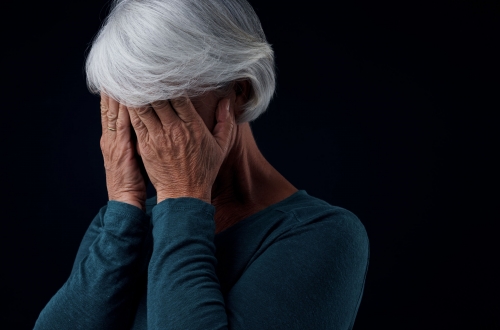Warning: Invalid argument supplied for foreach() in /home1/redcare1/public_html/wp-content/themes/uplift/swift-framework/content/sf-post-formats.php on line 89

Depression is a mood disorder that causes a persistent feeling of sadness and loss of interest in daily activities. It is also referred to as clinical depression or major depressive disorder and affects how one feels, thinks and behaves, leading to a variety of emotional and physical problems.
Even though depression is treatable (may be long term), many do not seek treatment because a lot of people are unaware of the symptoms and also because of the social stigma associated with it. Hence, it is worth noting that people do get better after undergoing treatment for depression.

Symptoms
Although some people only experience one episode in a lifetime, others may have multiple episodes. Symptoms include:
- Feelings of sadness, emptiness or hopelessness
- Angry outbursts, irritability, or frustration, even over small matters
- Loss of interest or pleasure in activities that would otherwise be pleasurable e.g. hobbies
- Sleep disturbances with some people getting too little sleep while others oversleep
- Reduced appetite and lack of energy
- Recurrent thoughts of death, suicide thoughts and/or attempts
- Unexplained physical symptoms like headaches and back pain

Symptoms may be mild with some people feeling miserable or unhappy without really knowing why. Also, symptoms may be severe enough to cause noticeable problems with day-to-day activities such as work, school, social activities and relationships with others.
Risk factors
As with many other mental disorders, it is difficult to pinpoint the cause. However, a variety of factors may be involved such as:
- Biological differences and Brain chemistry: people with depression may have physical changes in the brain. Also, neurotransmitters, which are naturally occurring chemicals in the brain play a role in depression. Changes in function and effect of these chemicals play a big role in the development of depression
- Hormones: hormonal imbalance may be involved in causing or triggering depression. Hormone changes in pregnancy and menopause are some of the most significant examples.
- Inherited traits: Depression is more common in people whose blood relatives also have the condition. Presence of another mental condition is also a risk factor
- Certain personality traits like low self-esteem, overdependence, extreme pessimism
- Traumatic or stressful life events, such as physical/emotional abuse, death or loss of a loved one, financial problems
- Alcohol or hard substance abuse
- Depression could also be triggered by certain medication like sleeping pills
Treatment
- Seeking help from a doctor is imperative.
- Depression is treated with medication and psychotherapy
- Reach out to friends, family, loved one or spiritual leader. It helps.

Prevention
These strategies may help in preventing depression:
- Take steps to control stress
- Reach out to family and friends
- Get treatment at the earliest sign of a problem
In conclusion, depression is a condition that affects many people, with the majority not seeking treatment. Having a positive attitude toward mental health is key to solving this issue.
Umar Adegoke, M.D.
